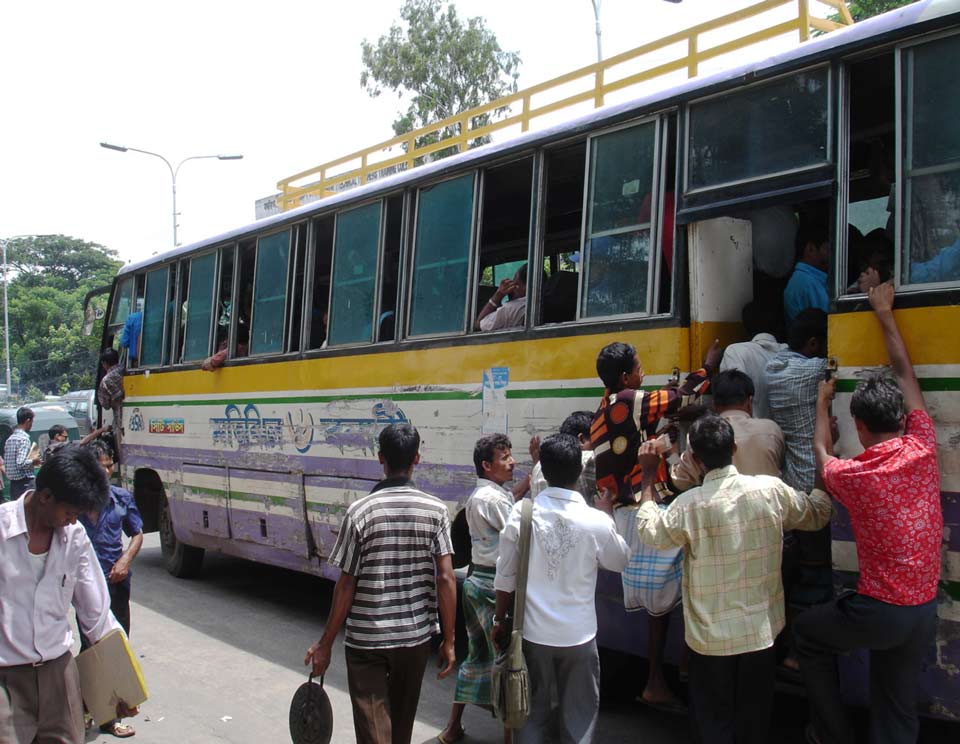Improving Seasonal Income Security During the Lean Season in Bangladesh
Abstract
A strategy to improve seasonal income security during the lean season will reach over 300,000 people in Bangladesh
Innovations for Poverty Action worked with researchers to evaluate the impact of a program that offered families in Rangpur, Bangladesh a small cash subsidy to encourage them to send a family member to a nearby city to work during the lean season, in order to curb seasonal income insecurity. The study found that the incentives greatly increased the likelihood of migration, and families offered the incentives ate better during the lean season. Those families were also more likely to send a migrant in later years, even without receiving additional incentives. In response to this evidence, Evidence Action partnered with RDRS, a Bangladeshi NGO, to expand the program to reach 310,000 people, and IPA is evaluating it at scale. If the program is shown to be effective at this scale, and can be scaled responsibly, it will be expanded to reach millions of people.
In 2017, Givewell selected No Lean Season as one of it's top-rated charities, based on existing evidence.
The Challenge
Three hundred million of the world’s rural poor suffer from seasonal hunger, which often occurs between planting and harvest when the demand for agricultural labor falls.[1] Those affected miss meals for a two- to three-month period, which is especially problematic for young children because it can delay their long-term development. In places where agricultural workers must rely on seasonal crops for their livelihood, seasonal migration from rural to urban areas can help families increase their income and food security. The fact that some people choose to stay behind and risk famine indicates that there may be barriers to migration, such as financial constraints, lack of information about urban job opportunities, or a desire to remain with family.
In the Rangpur region of Bangladesh, for example, high levels of poverty and seasonal famine make seasonal migration a potentially advantageous strategy for increasing income and improving food security, but few people actually migrate.
The Evidence
Innovations for Poverty Action worked with researchers to evaluate the impact of a program that offered families in Rangpur a small cash subsidy (600 takas or around $8.50) to encourage them to send a family member to a nearby city to work during the lean season. The migrant could collect an additional 200 takas (around $3.00) when they reported to their migration destination. Incentives were given either in the form of cash or a zero-interest loan.

The study found that the incentives greatly increased the likelihood of migration, and families offered the incentives ate better during the hungry season. Families that were offered an incentive were also more likely to send a migrant in later years—even without receiving any additional incentives. Researchers estimate that every dollar invested in the seasonal migration program in Bangladesh generated between $2 and $6 in benefits from increased consumption and income for families.
The Impact
In response to the evidence, Evidence Action, a global development organization focused on scaling rigorously-evaluated programs, has partnered with the Bangladeshi NGO, RDRS, to expand the program and evaluate it at scale. Over four years, the implementers will reach 310,000 low-income households.
IPA is managing the research, working with researchers to adjust the program and test if the impacts persist at this scale, and if there are any unintended effects of the program. This involves testing how the cash disbursements impact the greater community -- whether they lead to increases in the prices of goods and services, or if they have other positive or negative spillover effects on non-migrants.
If shown to be effective at this scale, Evidence Action plans to expand the program to reach millions of people.
In 2017, Givewell selected No Lean Season as one of it's top-rated charities.
This work is licensed under a Creative Commons Attribution 4.0 International License.
Sources
[1] Devereux, Hauenstein and Vaitla (2009). Seasons of Hunger: Fighting Cycles of Starvation among the World's Rural Poor. Pluto Press.












